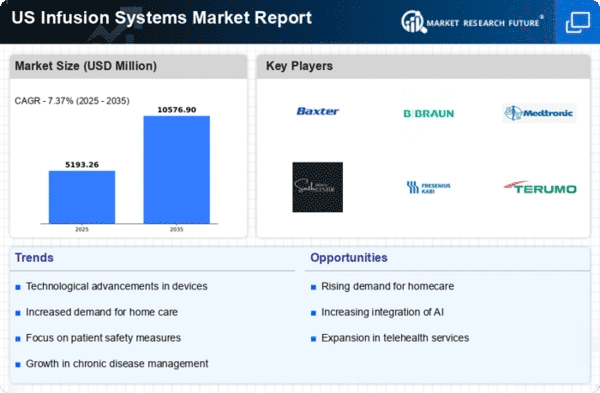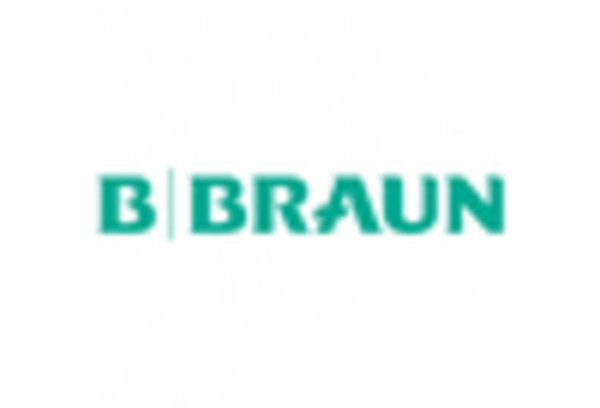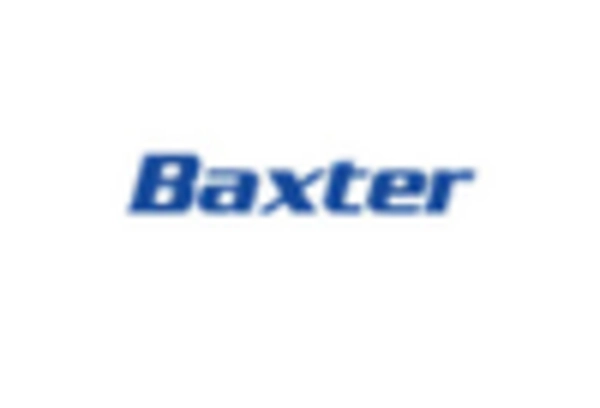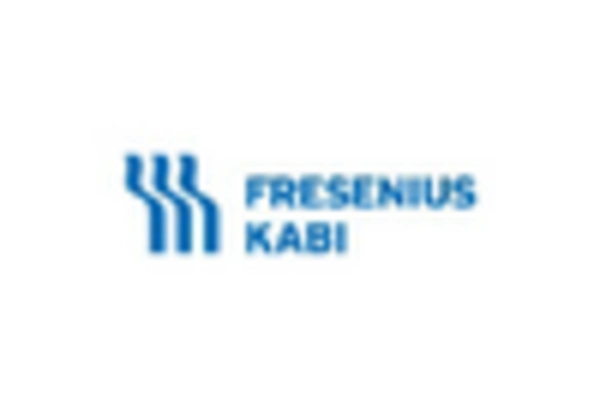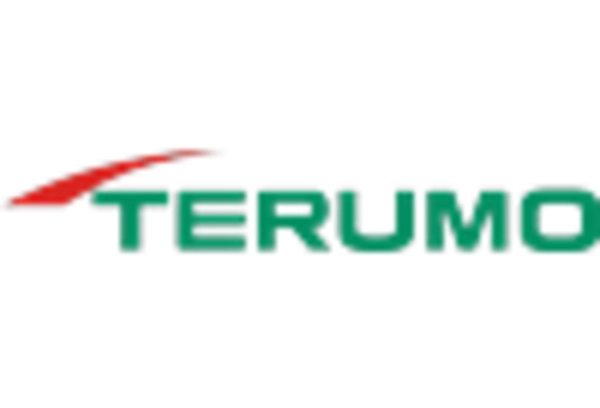Expansion of Healthcare Infrastructure
The expansion of healthcare infrastructure in the US is a vital driver for the infusion systems market. With ongoing investments in hospitals, outpatient facilities, and home healthcare services, the demand for efficient and reliable infusion systems is on the rise. The US healthcare expenditure is projected to reach $6 trillion by 2027, indicating a robust growth trajectory. This expansion not only increases the availability of infusion services but also encourages the adoption of advanced technologies in infusion systems. As healthcare facilities upgrade their equipment, The infusion systems market is set for significant growth, reflecting the evolving landscape of patient care..
Focus on Patient Safety and Quality of Care
Patient safety and quality of care are paramount in the healthcare sector, significantly impacting the infusion systems market. Regulatory bodies and healthcare organizations are emphasizing the need for safer infusion practices, leading to the adoption of advanced infusion systems equipped with safety features. The infusion systems market will benefit from this focus, as hospitals and clinics invest in technologies that minimize medication errors and enhance patient monitoring.. This trend is expected to drive market growth, with an estimated increase of 6% in demand for safety-enhanced infusion devices over the next few years.
Rising Demand for Home Healthcare Solutions
The infusion systems market is experiencing an increase in demand for home healthcare solutions.. This trend is driven by a growing aging population in the US, which is projected to reach 77 million by 2034. As more patients prefer receiving care at home, healthcare providers are adapting by incorporating advanced infusion systems that facilitate safe and effective treatment in non-hospital settings. The market for home infusion therapy is expected to grow at a CAGR of approximately 8.5% from 2025 to 2030. This shift not only enhances patient comfort but also reduces healthcare costs, making it a pivotal driver in the infusion systems market.
Technological Advancements in Infusion Devices
Technological advancements are significantly influencing the infusion systems market. Innovations such as smart infusion pumps, which integrate with electronic health records (EHR), are enhancing the accuracy and safety of drug delivery. The infusion systems market is projected to reach $5 billion by 2026, driven by technological advancements in infusion devices.. Features like dose error reduction systems (DERS) and wireless connectivity are becoming standard, improving patient outcomes and operational efficiency. As healthcare facilities increasingly adopt these technologies, the infusion systems market is likely to expand, reflecting the industry's commitment to improving patient care through innovation.
Increase in Chronic Diseases and Treatment Needs
The rise in chronic diseases such as diabetes, cancer, and cardiovascular conditions is a critical driver for the infusion systems market. According to the CDC, approximately 6 in 10 adults in the US have a chronic disease, necessitating ongoing treatment and management. Infusion systems are essential for delivering medications and therapies to these patients, particularly in outpatient settings. The increasing prevalence of chronic conditions is expected to propel the infusion systems market, with a projected growth rate of around 7% annually over the next five years. This trend underscores the importance of effective infusion solutions in managing long-term health issues.


